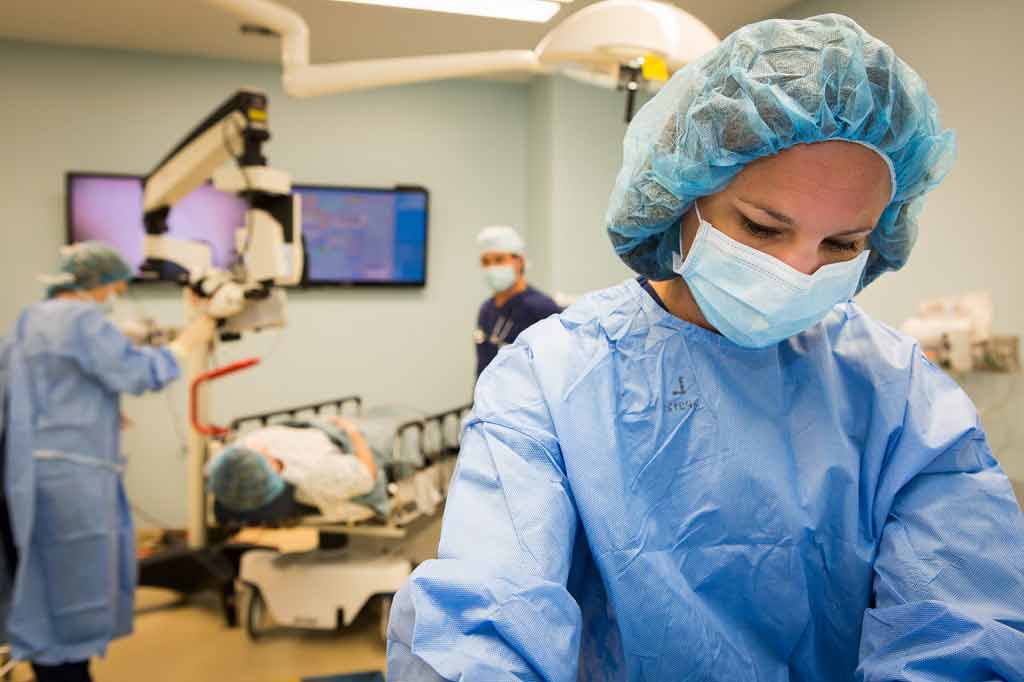More research needed to show if faecal transplants help autistic children
Medical practice

"Autism symptoms can be reduced 50% in children who received faecal transplants," reports the Mail Online.
"Autism symptoms can be reduced 50% in children who received faecal transplants," reports the Mail Online.
A new US study involving 18 children with autism spectrum disorder (ASD) found an improvement in digestive and autism symptoms 2 years after receiving a faecal transplant.
Eight children no longer fitted the criteria for a diagnosis of ASD and there was a 58% reduction in gut symptoms overall.
Faecal transplants, originally designed to treat C. diff infections, involves receiving a transplant of gut microbes taken from a donor with a healthy makeup of gut bacteria.
This procedure has been found to improve gut health and digestive symptoms.
While ASD is mainly associated with behavioural symptoms, people with ASD can also experience digestive symptoms such as diarrhoea and constipation.
Research suggests improving gut health could improve the children's ASD symptoms.
These are encouraging results, but this is very early-stage research involving just a small sample of children.
Though no adverse effects were reported, the safety of the procedure would need to be determined in a much larger trial.
There's also the possibility that the results were due to the placebo effect, so a randomised controlled trial is needed to make sure that the treatment works.
Where did the story come from?
The study was carried out by researchers from Arizona State University, Integrative Developmental Pediatrics and Northern Arizona University, all in the US.
It was funded by Finch Therapeutics and the Arizona Board of Regents.
The study was published in the peer-reviewed journal Scientific Reports on an open access basis, so it can be read for free online.
The Mail Online reported the study accurately, included expert opinions and explained that a much bigger trial would be needed before the treatment could be approved.
What kind of research was this?
This was a follow-up study of a case series. This type of study takes a small group of people with a condition, gives them all the same treatment and follows them up over time.
Any improvements or side effects might be a result of the treatment, but a randomised controlled trial would be needed to verify the results.
What did the research involve?
The researchers followed up 18 children with ASD who'd previously been given a course of healthy donor gut bacteria.
The children ranged in age from 7 to 17.
Prior to the original study they'd suffered from moderate to severe gastrointestinal problems, such as abdominal pain, indigestion, diarrhoea and constipation, since they were infants.
In the original study, the children were given:
- a 2-week course of vancomycin, an antibiotic to reduce unhealthy bacteria in the gut
- MoviPrep, a strong laxative to remove any traces of vancomycin and bacteria
- a proton-pump inhibitor, which reduces the amount of acid in the stomach in the hope that this would increase the survival rate of the donor bacteria
- healthy gut bacteria from a donor (standardised human gut microbiota) for 7 to 8 weeks
Two years later, the children and their parents completed various assessments of their autism and gut symptoms.
Sixteen children provided a stool sample to measure their gut bacteria.
What were the basic results?
There was a 58% reduction in gut symptoms according to the Gastrointestinal Symptom Rating Scale (GSRS), a checklist that looks at symptoms such as constipation, diarrhoea and bloating.
Abnormal stools (such as watery or hard stools) occurred less frequently, on a quarter fewer days than before, and most children had a wider range of gut bacteria.
According to the Childhood Autism Rating Scale (CARS):
- the severity of ASD was 47% lower
- 3 children were rated as severe, compared with 15 before the treatment
- 7 were rated as mild-moderate
- 8 were below the cut-off level for diagnosis of an ASD
Parent-rated assessments also showed improvements:
- 8 of the children were rated as severe on the Social Responsiveness Scale (SRS), compared with 16 before the treatment
- scores on the Aberrant Behavior Checklist (ABC) were 35% lower
Children with improvements in gut symptoms were more likely to have also had improvements in symptoms of ASD.
How did the researchers interpret the results?
The researchers concluded that: "These encouraging observations demonstrate that the intensive MTT [microbiota transfer therapy] intervention is a promising therapy for treating children with ASD who have GI problems."
They said they "recommend future research including double-blind, placebo-controlled randomised trials with a larger cohort."
Conclusion
This small study shows promise for this treatment protocol, but as the researchers are quick to point out, the results need to be verified in a much larger placebo-controlled trial.
At this early stage, we do not know whether the improvements observed were a result of the placebo effect, as the study was not blinded.
In addition, it could be 1 or a few aspects of the treatment protocol that made the difference, rather than all 4 steps. For example, the stomach acid suppressant may have been the key factor.
Though the researchers excluded children with specific gut diagnoses, such as ulcerative colitis, they did not perform any investigations.
This means there may have been a wide variety in the causes among the children studied, which could explain why some improved and others did not.
Previous studies have shown an association between gut symptoms and ASD, but this is not the case for all children with ASD.
So even if the treatment is shown to be effective, it may just be for a select group of children.
The results of the study could also have been affected by the fact 12 of the children had changed their usual medication, supplements or diet during the course of the 2-year follow-up.






 Subscribe
Subscribe Ask the doctor
Ask the doctor Rate this article
Rate this article Find products
Find products







